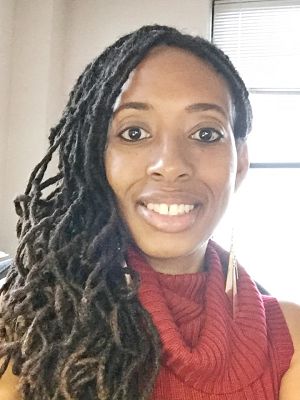Sanctifying Israel
I got pregnant at twenty-one. It happened while I was still an undergrad, directly after a Bible study meeting at the campus ministry. And I do mean right after—maybe within the hour. The father and I had just prayed about fornication at the meeting. I think we were trying to stop, or considering trying to stop—I’m a little hazy on the details.
Nobody that mattered shamed me for being an unwed mother. My mother is the kind of Christian who, instead of being embarrassed about my situation, bought a bassinet. She brought it home two hours after I took the pregnancy test. Then she broke out into a full praise over how God was going to use my baby to teach me about unconditional love. She was so relieved. She knew I would need my son in the same way she had needed her children.
I don’t remember what my grandparents said but I know that my uncle was afraid I wouldn’t finish my degree. It took forever, but I did get it. When I called to tell my then-best friend the awesome news, her mother took the phone and said, “Jahzerah, you’re gonna be fine, but promise me that you won’t make that baby your god.” I promised that I wouldn’t, even though I had no idea what she meant.
* * *
My son, Israel, is fifteen now. He’s a gorgeous kid. He’s smart and charming and everyone knows he has a much better heart than I do. He apologizes for me when I mess up with others. He’s a great listener and is patient when I channel my anxiety by nagging at him about how the carpet needs to be vacuumed or the tabletops dusted. Even though he’s weird now, as all teenagers are, he’s still the best person I know.
 Because I am a Christian, I believe it’s right and safe to worship God. God offers reciprocation. If I acknowledge God in all that I do, He will never leave me. He is obligated to listen to me. He is obligated to love me. My son on the other hand, is hardly as faithful. He loves me but is constantly preparing to replace me with girls and basketball and college. He was seven when he said, “Mommy, God said He didn’t call me to live in Dayton.” At seven, he and God were already planning a purpose for him that did not directly include me. I felt betrayed.
Because I am a Christian, I believe it’s right and safe to worship God. God offers reciprocation. If I acknowledge God in all that I do, He will never leave me. He is obligated to listen to me. He is obligated to love me. My son on the other hand, is hardly as faithful. He loves me but is constantly preparing to replace me with girls and basketball and college. He was seven when he said, “Mommy, God said He didn’t call me to live in Dayton.” At seven, he and God were already planning a purpose for him that did not directly include me. I felt betrayed.
I understand that my son’s growth and his desire for independence are healthy. I don’t want to hold up his life; the problem is that I have no idea what to do with my own. For nearly sixteen years I’ve done nothing but wait at Israel’s altar. No dating, no solo nights out, no fun. I’ve lived my entire adult life sacrificing for my son.
It took me nearly sixteen years to understand that’s what my friend’s mom meant. She was warning me that if I made Israel my whole world, when he was gone, I would feel lost. I would feel like there was nothing left.
* * *
A co-worker told me that letting go of one’s children is a normal part of the journey all parents take, that it leaves all parents a little unsteady. She told me that once her children had emptied the nest, she and her husband made it a point to get to know one another all over again. For twenty years, they had just been parents, the same way I had. They knew that they had each forgotten how to be man and wife. So, they went on vacations. They instituted a date night. They made a point to give their full attention to one another. They took their children off the altar and put each other on it.
My question is, how in the heck do I do that? I’m not a part of a couple. I never married. While I was raising my son in my twenties, my friends were starting prestigious and time-consuming careers. They waited until their early thirties to get married and now have young children. While I am nearing the end of my journey, theirs is just beginning.
There is a story in the Bible, in the Book of Matthew, that talks about talents. To summarize: a wealthy landowner goes on a trip and leaves his property in the care of his three servants. Before he departs, he distributes five talents to the first servant, two talents to the second and one talent to the last. Upon the landowner’s return, the servant who received five talents reports that while his employer was gone, he invested what he received and made five more talents. The servant who got two did the same. The servant who got one talent buried what he received and returned it just as it was, with no increase. The landowner was displeased with the servant who did nothing with the gift he’d received, while he blessed the ones who moved on faith.
Every time I read that story, I feel like the servant who buried his talent. I’ve always wanted to write. I’ve always wanted to travel. I’ve always wanted to move beyond the little world I grew up hiding in. I’ve always wanted to create: new worlds, new characters, new experiences. But I didn’t. I stopped the day I got pregnant. Instead of writing I hid my talents in the love of my son; and now he’s tossing them back to me.
“Why would I try to stop you from going somewhere? Heck, I’m trying to go somewhere!” he informed me while briefly tearing his eyes away from the video game he was playing. I had just announced that I’d been accepted to an MFA program in Los Angeles and had expected him to make me feel guilty about my leaving town without him. Instead, our little talk devolved from my achievement to a gripe session about why I wouldn’t let him hang out with his friends on school nights. He couldn’t have cared less that I was venturing off to learn to how be a writer.
A fellow writer asked me why I refuse to let go. It’s clear that Israel doesn’t want me to hang on and that no one who loves me would judge me for pursuing my own dreams. In fact, it’s the opposite. They would love to support me. They would love to see me succeed.
So, what’s the problem? What am I afraid of? The answer is plain and simple. I don’t want to let Israel go because I don’t want to let my cross go. My cross symbolizes my penance. I thought I was supposed to carry it around like a scarlet letter. While it’s true that no one judged me for having a child out of wedlock or for taking forever to finish school, I judged myself. If I stop judging myself—if I let that go—I won’t have a penance to make; and what price is too big to pay for bringing someone into the world without a father? How can I ever pay enough?
* * *
 I know it’s time to put down the guilt and I think I know how to do it. I’ve heard it said that when we write, we heal. We see ourselves in the lives we create, in the stories we tell, even in blog posts. Maybe that’s what I’m doing now as I write this. (Even as I listen to Israel give me guidelines on how I can behave at his girlfriend’s house before homecoming.) Maybe I’m healing—one word at a time—as he puts on his suit and yells that he doesn’t know what I’ve done with the corsage. Maybe, while he waits impatiently at the door, and I reread the previous sentence, I’m becoming a little more myself again. I like to think that’s possible. I like to think that even if I never make the New York Times Best Sellers list, I’ve done something. I’d like to think that I’ve become an agent in my own healing.
I know it’s time to put down the guilt and I think I know how to do it. I’ve heard it said that when we write, we heal. We see ourselves in the lives we create, in the stories we tell, even in blog posts. Maybe that’s what I’m doing now as I write this. (Even as I listen to Israel give me guidelines on how I can behave at his girlfriend’s house before homecoming.) Maybe I’m healing—one word at a time—as he puts on his suit and yells that he doesn’t know what I’ve done with the corsage. Maybe, while he waits impatiently at the door, and I reread the previous sentence, I’m becoming a little more myself again. I like to think that’s possible. I like to think that even if I never make the New York Times Best Sellers list, I’ve done something. I’d like to think that I’ve become an agent in my own healing.
 Jahzerah Brooks is an Ohio-based fiction writer. She received her BA in Liberal Arts at Antioch University Midwest and is currently working towards her MFA at Antioch University Los Angeles, where she is the fiction editor of Lunch Ticket. Jahzerah lives in Dayton with her son and two dogs.
Jahzerah Brooks is an Ohio-based fiction writer. She received her BA in Liberal Arts at Antioch University Midwest and is currently working towards her MFA at Antioch University Los Angeles, where she is the fiction editor of Lunch Ticket. Jahzerah lives in Dayton with her son and two dogs.





